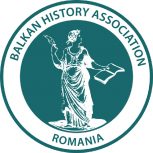The Balkan History Association is preparing a volume dedicated to deportations in the twentieth century with a special emphasis on people deported as a result of totalitarianism. Hiding under the mask of an administrative measure, the authorities found the perfect way to punish civilians. Those persecuted (whether because of their ideas, ethnicity, religion or social standing) had to pay a huge price for not coping with the views of the authorities. Considered to be “dangerous elements”, deportees were forced to leave their homes together with their families, being allowed to take with them only few goods, their houses and possession being confiscated by the State. No matter of gender and age, men, women, children and old people were forced to start a one-way journey, in trains together with animals, towards an uncertain destination. Living under the blue sky for days, the deportees learned to build a new life for themselves. The conditions under which they had to live were harsh, many of those deported dying from starvation or disease. Somehow they found the strength not to give up and lived to tell their memories thus providing a better insight in the depth of this chaos.
Described as way of cleansing, deportations are considered to be a crime against humanity. Considered to be the darkest events of the contemporary history, they destroyed people’s moral values and self-confidence, the feeling of non-acceptance and exclusion being present in the deportees’ hearts years after they finally managed to return back home and reintegrate into the society. Nothing will compensatefor their suffering and loss, the feeling of having suffered injustice being permanent, but their stories should stay alive in the collective memory so that such atrocities never happen again.
In order to shed more light on the nature of this phenomenon and from the desire to contextualize and compare it with many other cases of cleansing all over the south-east Europe and neighboring areas, we invite authors to submit abstracts/papers with special emphasis on: atrocities of the First and the Second World War, ethnic cleansing, challenges facing stigma and discrimination, deportations in the light of International Law, Nazi and Stalinist terror, deportation of Roma, Jews and other persecuted minorities (from micro to macroscale), case studies and social perspectives, government acts, government ordinances and decisions regarding deportation, forms of resistance against state policy. The volume will be published by Peter Lang (Series “South-East European History”).
Submission procedure
The volume will be published by Peter Lang (in the series “South-East European History”). Original manuscripts should be prepared following the editorial guide of Peter Lang available on its website, especially “Style Guidelines – British English” and “Submission Guidelines“. Manuscripts must not have been published, submitted for publication or available on the internet elsewhere. Interdisciplinary work is particularly welcome. Please submit your proposal, including the title of your manuscript, an abstract (up to 300 words), and an author’s biography (up to 100 words) to all editors. The abstract should include the research question and purpose, the approach and main ideas, and results. No figures, tables, footnotes, or endnotes should be included in the abstract. Articles should not exceed 8,000 words in length including footnotes and references (reference list or bibliography)..
Deadlines
February 1, 2021: Submission of proposals
February 7, 2021: Notification of accepted proposals
May 30, 2022: Receipt of final chapters for peer-review
June 30, 2022: Revised chapters re-submitted to editors
August 30, 2022: Approved chapters submitted for publishing
Editors
Mihaela Martin (Babeş-Bolyai University, Cluj-Napoca), mihaela.martin@ubbcluj.ro
Ludmila Cojocaru (Moldova State University, Chișinău), lcojocari@gmail.com
Claudia-Florentina Dobre (“Nicolae Iorga” Institute of History, Bucharest), cfdobre@gmail.com
Blagovest Njagulov (Institute for Historical Studies, Sofia), bnjagulov@gmail.com
Michael Sagatis (Balkan History Association), sagatism@googlemail.com
Dallas Michelbacher (United States Holocaust Memorial Museum), dmichelbacher@ushmm.org
Please circulate this call for papers among your colleagues and other potentially interested scholars.
